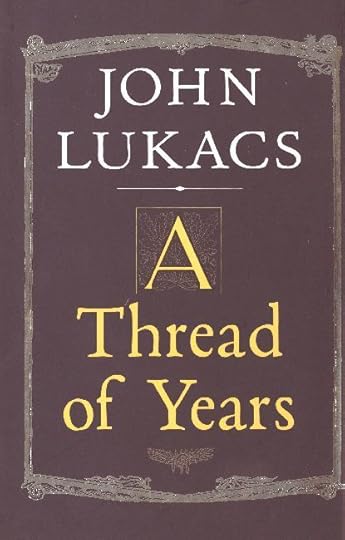Michael Flynn's Blog, page 37
June 9, 2012
Collecting Interest
Great Expectations: Part IThere is no answer to boredom. -- Katherine Fullerton GerouldNo one will read your story if it isn’t interesting. So one of the first problems of a fiction writer is to make his story interesting. It must be interesting to the writer (else he will not complete it) and it must be interesting to the reader. Since reader interests vary widely, and in particular may vary from your own, this may seem a shot in the dark, a pig in the poke, a bird in the bush, a vote for… You get the picture. But while there is no royal road to story-writing, there are certain peasant footpaths. A story usually presents either a Decision to be Made or a Problem to be Solved. These define two distinct kinds of fictions, sometimes said to be distinguished by having a Story Line or a Plot Line, respectively. However, today’s remarks apply to both kinds of stories. One day, Jimmy decided he would drive the family car to St. Louis.Okay, we know who has set out to accomplish what. But it’s not very interesting. Why would anyone read further? So, how about:As the dust from the asteroid strike began settling over the ruins of Denver, Jimmy decided he had better take the family car and high-tail it to St. Louis before the engine became choked with grit. That’s better. We not only know the Situation (drive to St. Louis) but we know why it’s Important. Try this:As the dust from the asteroid strike began settling over the ruins of Denver, Jimmy decided he had better take the family car and high-tail it to St. Louis before the engine became choked with grit. But first he had to tie wooden blocks to his sneakers so his feet could reach the pedals. Wait. He’s a kid? Why is he driving the family car? Where are his parents? Why St. Louis? WHAT’S GOING ON HERE?Read more »
The link will go to TOF Spot and a further link to Part II.
The link will go to TOF Spot and a further link to Part II.
Published on June 09, 2012 18:39
June 8, 2012
Dancing Waters
Take the traditional "dancing waters" and add computers and Newtonian gravitational motion and you get a new art form:
Published on June 08, 2012 10:13
May 31, 2012
Grade Inflation
A is for AverageDon't take this entirely too seriously. I saw the chart at Wm. Briggs, Statistician to the Stars! and followed it back to Gradeinflation.com but I did not dig into the data.
The average grades given for each year by a sample of 79 colleges over the past near-century. Data for the 1930s is sparse, being only about 8 colleges. So it may also be that not all schools are present in all years, esp. in the early part of the graph.
 Read more »
Read more »
The average grades given for each year by a sample of 79 colleges over the past near-century. Data for the 1930s is sparse, being only about 8 colleges. So it may also be that not all schools are present in all years, esp. in the early part of the graph.
 Read more »
Read more »
Published on May 31, 2012 12:44
Back to the Future!
A Warning to Air-Ship Investors!
 Freight haulage? We think not?Ir's amazing how incisive rational thinking is when applied to new possibilities.
Freight haulage? We think not?Ir's amazing how incisive rational thinking is when applied to new possibilities.
Good old Paleofuture delights with these excepts an editorial in the December 10, 1908 Engineering News on the future of air transportation (as reprinted in the January 2, 1909, issue of Literary Digest *)
 Freight haulage? We think not?Ir's amazing how incisive rational thinking is when applied to new possibilities.
Freight haulage? We think not?Ir's amazing how incisive rational thinking is when applied to new possibilities. Good old Paleofuture delights with these excepts an editorial in the December 10, 1908 Engineering News on the future of air transportation (as reprinted in the January 2, 1909, issue of Literary Digest *)
So far as the possibilities of freight transportation are concerned, it may be passed with a word. Wherever ordinary methods of transportation on land are available, it will be absurd to carry goods of any sort through the air. The cost of such transport would be measured not in mills per ton mile, as in rail or water carriage, or cents per ton mile, as in wagon haulage, but in dollars or hundreds of dollars per ton.Read more »
Published on May 31, 2012 11:11
May 29, 2012
Sex in Marriage
Quote ot the DayJames Chastek at Just Thomism took note of an comment by Thomas Aquinas, aka Da Man, regarding when sex is sinful even in marriage. He writes:
Brandon digs out a fantastic text from STA’s commentary on Corinthians:
Read more »
Brandon digs out a fantastic text from STA’s commentary on Corinthians:
…that the conjugal act is sometimes meritorious and without any mortal or venial sin, as when it is directed to the good of procreation and education of a child for the worship of God; for then it is an act of religion; or when it is performed for the sake of rendering the debt, it is an act of justice. But every virtuous act is meritorious, if it is performed with charity. But sometimes it is accompanied with venial sin, namely, when one is excited to the matrimonial act by concupiscence, which nevertheless stays within the limits of the marriage, namely, that he is content with his wife only. But sometimes it is performed with mortal sin, as when…So guess: what is he going to say? Is sexual activity a mortal sin when “it is not open to procreation” (an answer that is at hand from what he says at the head of the quotation) or when “it is performed in an unnatural way”? Don’t we expect St. Thomas to mention some obvious perversion? Yet, in the casual way that he says all his revolutionary things, he says that sexual activity is a mortal sin when…
Read more »
Published on May 29, 2012 10:19
May 25, 2012
Science Marches On!
Stop the PressesScience™ has proven that college boys like to look at sexy women!
And you thought you already knew that? That was only Anecdotal Evidence© and had not been vetted in a really-truly Scientificalistic Experiment™ and statistically analyzed by people who took a whole semester of cookbook Stats for Psychs course back in undergrad! Woo, as they say, hoo!
Read more »
And you thought you already knew that? That was only Anecdotal Evidence© and had not been vetted in a really-truly Scientificalistic Experiment™ and statistically analyzed by people who took a whole semester of cookbook Stats for Psychs course back in undergrad! Woo, as they say, hoo!
Read more »
Published on May 25, 2012 19:28
May 22, 2012
The hazards of research
Res gestae Arturi britanni
 TOF amidst his books thinking
TOF amidst his books thinking
seriously of writing somethingOne of the peculiarities of writing, and for some a fun part, is researching and creating the background. It is TOF's custom to weave any real history into the fictional narrative as closely as possible, so if any reader is insane enough to research some reference, he will actually find something at the other end. Usually. Well, sometimes.
In the current work-in-progress, The Shipwrecks of Time, fellows at a small private historical research institute are conducting various studies. Francis Xavier Delacorte (aka Frank) is off in the Rhineland searching for evidences of "Lost Books," tomes known only by reference to their titles, like Shakespeare's play Cardenio, or Francois Villon's The Devil's Fart. Most of the books are "cover," since his real interest (or rather, the Institute Director's real interest) is in the lost Peruzzi Manuscript, allegedly written by one Henry of Regensburg in the 14th century and supposedly cursed. Everybody who gets close to finding it dies. (A good reason not to look for it, sez TOF; but then a) some folks don't believe in curses and b) there wouldn't be a book then.)Read more »
 TOF amidst his books thinking
TOF amidst his books thinkingseriously of writing somethingOne of the peculiarities of writing, and for some a fun part, is researching and creating the background. It is TOF's custom to weave any real history into the fictional narrative as closely as possible, so if any reader is insane enough to research some reference, he will actually find something at the other end. Usually. Well, sometimes.
In the current work-in-progress, The Shipwrecks of Time, fellows at a small private historical research institute are conducting various studies. Francis Xavier Delacorte (aka Frank) is off in the Rhineland searching for evidences of "Lost Books," tomes known only by reference to their titles, like Shakespeare's play Cardenio, or Francois Villon's The Devil's Fart. Most of the books are "cover," since his real interest (or rather, the Institute Director's real interest) is in the lost Peruzzi Manuscript, allegedly written by one Henry of Regensburg in the 14th century and supposedly cursed. Everybody who gets close to finding it dies. (A good reason not to look for it, sez TOF; but then a) some folks don't believe in curses and b) there wouldn't be a book then.)Read more »
Published on May 22, 2012 22:24
May 19, 2012
One man's meat is another man's person
Getting Personal
 A most peculiar book.
A most peculiar book.
Highly recommendedOn another site there is an on-going dialogue of the deaf regarding the nature of person and when this personhood comes into existence. By this I mean not that various commentators are arguing with one another, or even arguing past one another; but that most commentators are content to post their own opinion and then ignore anything else that gets said. This peculiar reluctance to engage is related I think to what John Lukacs once called the Philadelphia cult of safety.
Just as the cult of Boston was respectability and that of New York was success, Late Modern Philadelphians were concerned with avoiding risk. Thus, one simply did not chuck it all and head off to California but stayed with the tried-and-true. There is much to recommend this attitude. Cutting Edge fails far more often than State-of-the-Art, and one need only say the words "Experimental Literature" or "Progressive Education" to understand the risks involved. But to be safe includes being safe in one's own opinions, and that makes contrary speech an intolerable threat to one's safety. We can see that the wider Kulture today has been largely Philadelphianized. Disagreement is treated as if it were aggression.
But we digress. My larger point, aside from the one under my hat, is that there are several common tropes in the discussion of person that bear examination.
Read more »
 A most peculiar book.
A most peculiar book.Highly recommendedOn another site there is an on-going dialogue of the deaf regarding the nature of person and when this personhood comes into existence. By this I mean not that various commentators are arguing with one another, or even arguing past one another; but that most commentators are content to post their own opinion and then ignore anything else that gets said. This peculiar reluctance to engage is related I think to what John Lukacs once called the Philadelphia cult of safety.
Just as the cult of Boston was respectability and that of New York was success, Late Modern Philadelphians were concerned with avoiding risk. Thus, one simply did not chuck it all and head off to California but stayed with the tried-and-true. There is much to recommend this attitude. Cutting Edge fails far more often than State-of-the-Art, and one need only say the words "Experimental Literature" or "Progressive Education" to understand the risks involved. But to be safe includes being safe in one's own opinions, and that makes contrary speech an intolerable threat to one's safety. We can see that the wider Kulture today has been largely Philadelphianized. Disagreement is treated as if it were aggression.
But we digress. My larger point, aside from the one under my hat, is that there are several common tropes in the discussion of person that bear examination.
Read more »
Published on May 19, 2012 20:40
May 14, 2012
Congratulations
Published on May 14, 2012 18:05
The Age of the State
Bambi vs. Godzilla
 US House of Representatives
US House of Representatives
Note twin fasces flanking the flag
The growing powerlessness of the modern state reflects the abdication…of its erstwhile governing classes; and it is at least probable that in its wake there will follow not the blessings of increased liberty but a long transitory brutal period of insecurity and terror.
– John Lukacs, The Passing of the Modern Age Alexis de TThe Age of the State.
Alexis de TThe Age of the State.
The absolute, divine-right monarch had been unknown during medieval times, which preferred its kings weak and nominal; but royal absolutism ensured peace and security; and those are bourgeois virtues, par excellence. So the rise of the bourgeoisie meant the rise of the monarchs. Strong monarchs were even seen as democratic – champions of the people against unruly barons.
And with the monarchs came the Totalizing State. The self-governing chartered corporations of the Middle Ages – free towns, universities, guilds, companies of players – were brought under State regulation or control. The scope of State authority continued increasing even after the bourgeoisie turned against the monarchs. Alexis de Tocqueville wrote that democratic despotism would be “more extensive and more mild.”
READ MORE
 US House of Representatives
US House of RepresentativesNote twin fasces flanking the flag
The growing powerlessness of the modern state reflects the abdication…of its erstwhile governing classes; and it is at least probable that in its wake there will follow not the blessings of increased liberty but a long transitory brutal period of insecurity and terror.
– John Lukacs, The Passing of the Modern Age
 Alexis de TThe Age of the State.
Alexis de TThe Age of the State. The absolute, divine-right monarch had been unknown during medieval times, which preferred its kings weak and nominal; but royal absolutism ensured peace and security; and those are bourgeois virtues, par excellence. So the rise of the bourgeoisie meant the rise of the monarchs. Strong monarchs were even seen as democratic – champions of the people against unruly barons.
And with the monarchs came the Totalizing State. The self-governing chartered corporations of the Middle Ages – free towns, universities, guilds, companies of players – were brought under State regulation or control. The scope of State authority continued increasing even after the bourgeoisie turned against the monarchs. Alexis de Tocqueville wrote that democratic despotism would be “more extensive and more mild.”
READ MORE
Published on May 14, 2012 03:48
Michael Flynn's Blog
- Michael Flynn's profile
- 237 followers
Michael Flynn isn't a Goodreads Author
(yet),
but they
do have a blog,
so here are some recent posts imported from
their feed.



